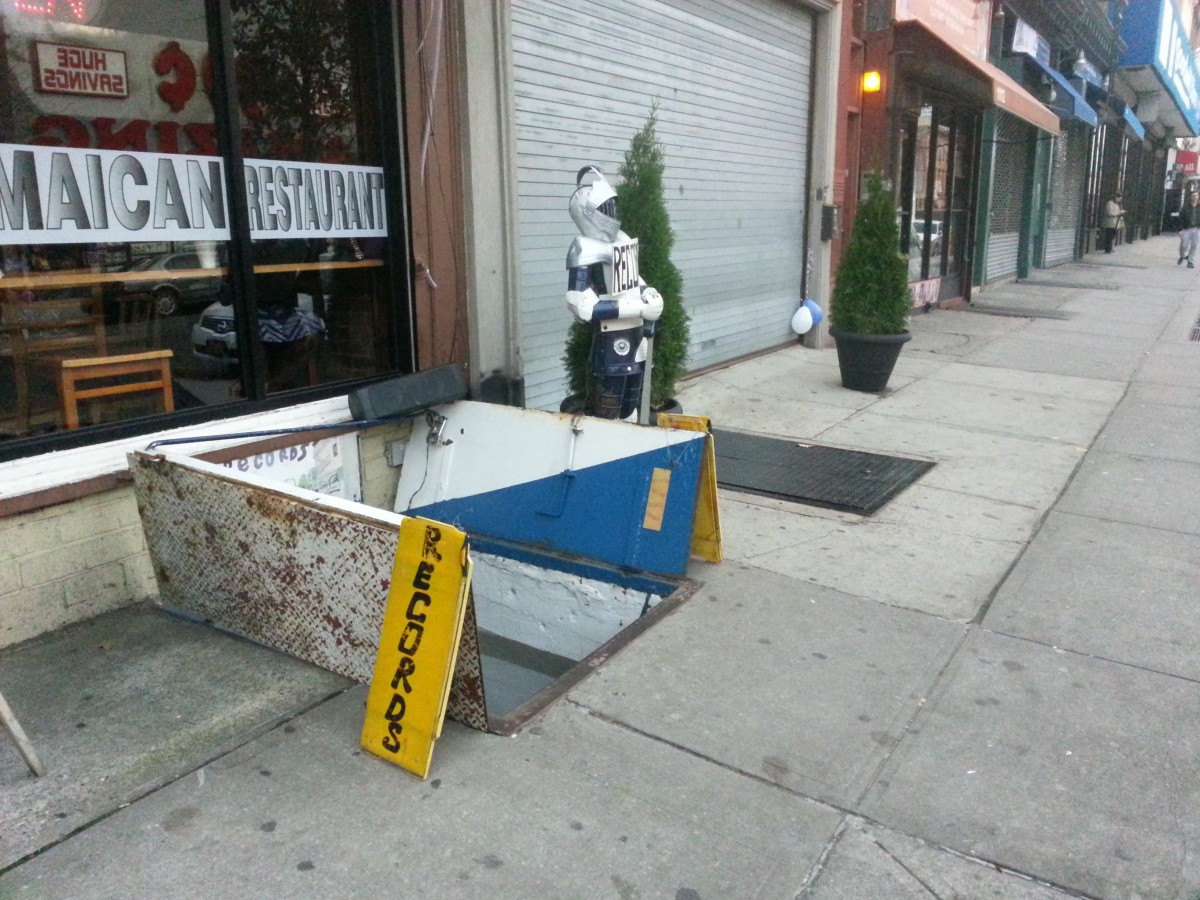We underestimate our connections to neighborhoods: the friendly faces that we flutter our hands to, the casual conversations that shake our souls with an unanticipated import, the nodes and locational lodestones we come to know as intimately as our friends and lovers. But when we are plucked from these felicitous and regular rhythms because of an eviction or a job loss (or in my case, a colossal act of errant idiocy), it can be as unsettling as a divorce or as earth-shattering as an air strike. But one is forced to accept the hard reality: Your neighborhood is no longer yours.
I came to know the knight when I first moved to Brooklyn eight years ago. I was living alone in a railroad apartment in Prospect Lefferts Gardens, barely slapping enough freelance checks together to make rent. A group of friends and I initiated a weekly writing club at a now somewhat notable cafe on Fulton Avenue. I would take the subway shuttle up from the Prospect Park station and, on the walk to the cafe, I would witness the shining knight standing proudly on the concrete, standing watch over the thumping Motown music drifting upward from a somewhat concealed basement. There was something homespun and authentic about this tidy arrangement, which was more ample once you stepped through the sanctum. It was a spirit not unlike Brazenhead Books, the great secret bookstore on the Upper East Side now threatened with extinction. It would take me a few years to actually walk down the steep steps and talk to the friendly dreadlocked man spinning vinyl and always having a hell of a mellow good time. He was a man doing his best to keep some part of Biggie’s old stomping grounds alive, even though the neighborhood was changing. I had no idea that I’d be living only a few blocks from the knight years later.
Now an affinity for a lost neighborhood should never be confused with nostalgia, and one should take great care to uproot any instinct to cling to the past. I suppose this is why I have been making a farewell tour of where I once lived. I’ve made most of my rounds, but there was one place missing. And it sneaked up on me on Thanksgiving, as I was walking to the subway from a not very notable place. The knight was outside, standing guard for the important values and defying the ineluctable tide of gentrification that was coming. The tunes were grooving. And even though it was very cold, the old school feel warmed me to the core.
I walked down the steps. Nobody was there except the practically ageless proprietor. His hands were gently pulling the next record from its sleeve. I had something to say.
“Hello! I’m not living in this neighborhood anymore, but I just wanted to thank you for being here. I’ve always said that, as long as you’re around, this neighborhood will be okay, that the shit coming at us from the west will be held off a bit. Please hold out here as long as you can. Please keep the knight on the sidewalk.”
There was a pause. The proprietor was surprised by all this.
“And thank you for being open on Thanksgiving!”
“Thank you. That’s…that’s the best thing you could have said to me. Peace.”
I said my goodbye. And he warned me about the sharp steps.
We underestimate our connections to neighborhoods. And that’s why it’s important to tell the people gluing a hood together that what they’re doing is essential. If you see something, say something.

Lovely goodbye, though I’m not sure I agree that clinging to the past is always unwise. Nostalgia has a bad press, but perhaps unfairly so.
More self-pity from the reigning master of it. You haven’t leaned a thing. Sad.
St_Dymphna, ‘a colossal act of errant idiocy’ does not sound like self-pity to me. Our world could use a much greater generosity of spirit than you appear to extend towards a fellow human being, one who is undoubtedly flawed — like each one of us.
Thank you for the comment, Lee. There is a substantial difference between self-examination and self-pity, and you can probably guess what I’ve spent a good deal of time practicing. I place no stock in commenters from Troy, New York who don’t have the guts to use their real names and think they’re being oh so clever with their obvious Catholic references, but they deserve our compassion as well.
I suppose my opinion would carry more weight if I were from Greenpoint or Carroll Gardens? I might suggest you be less high handed, especially considering your current circumstances; opinions from Troy are probably about the best you can hope for these days.